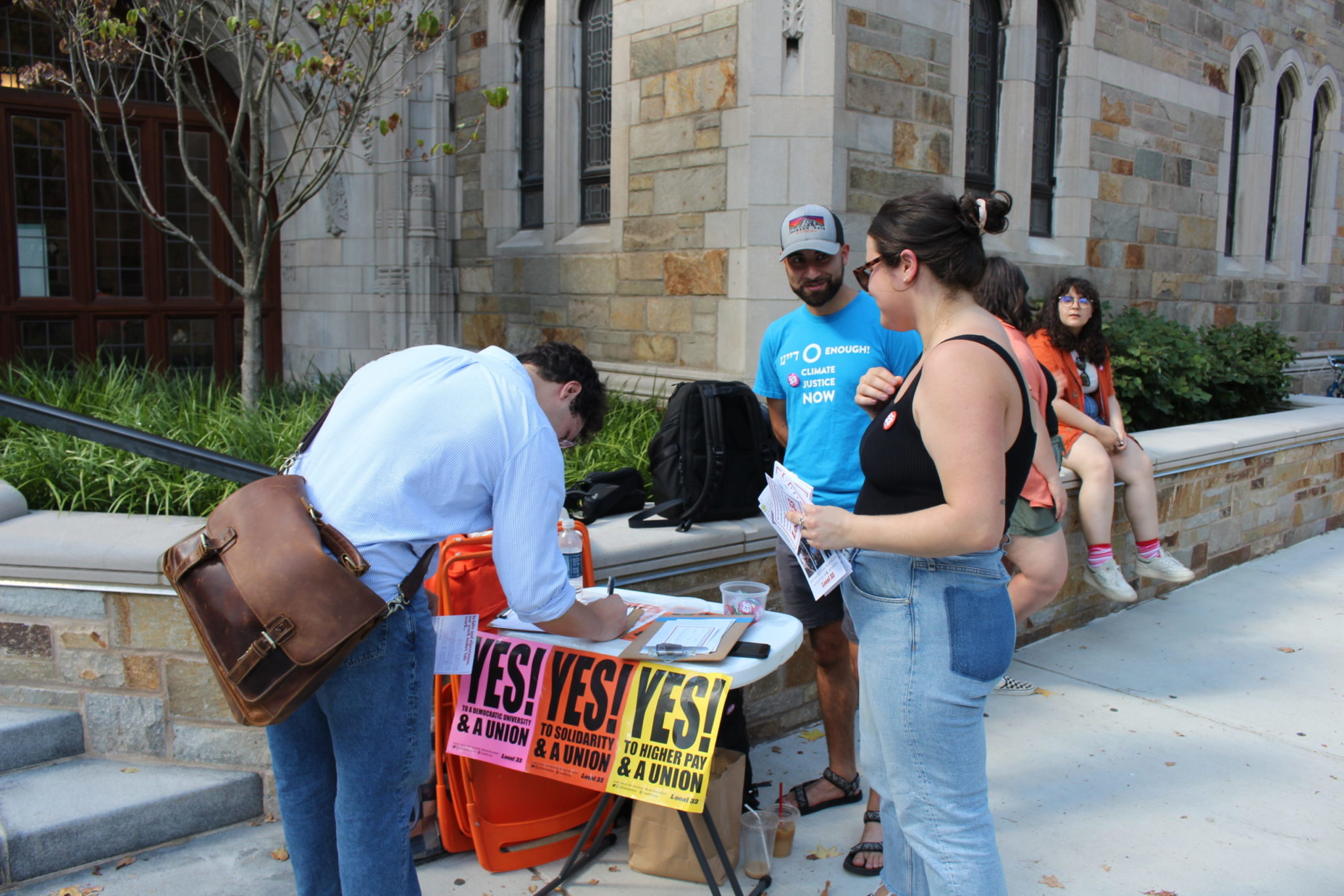Yale’s graduate students begin union card-collection campaign
Graduate students began the process of forming a union through asking grad students to sign cards signifying their intent to unionize.

Yash Roy, Contributing Photographer
As the daughter of two educators, Camila Marcone GRD ’27 has been around unions since she was born.
Now, as a second-year medieval studies doctoral student, Marcone is organizing with her fellow graduate student workers for a union of their own. Local 33, the graduate student worker union that Yale does not recognize, hosted a call-to-action protest in May. This fall, the group began the semester by staging a card-collection campaign early last week, calling on graduate students to sign cards signifying their intent to join a union.
“This part of our organization’s effort allows us to start the process of formally unionizing,” said Local-33 co-president Paul Seltzer GRD ’23. “If a majority of grad student workers sign these cards, the University can opt to recognize the union without a formal ballot involving the National Labor Relations Board.”
Local 33 has set up card-collection tables across campus over the last week, including on Cross Campus, in front of the Humanities Quadrangle, on Hillhouse Avenue and on 425 College St.
According to Seltzer, Local 33’s work and similar graduate student unions organizing at peer institutions mark an inflection point in the relationships between universities and their unionizing employees, as graduate students at other peer institutions like MIT, Columbia and Harvard rally for recognition as well.
“We’re in a really special moment right now because everyone is really excited,” Marcone said. “It’s been especially exciting to see all of the first-year grad student workers come in and immediately go ‘yes, this is something I really want to be a part of.’ The pandemic meant that so many of us were taking on even more responsibilities without extra compensation, so it shifted many of our perspectives on unionization.”
According to Carson Bryant GRD ’23, a sixth-year molecular biophysics and biochemistry doctoral student, the current campaign has elicited excitement from many of his colleagues, who see many benefits to a unionized workforce. For Bryant, a union may bring an independent grievance procedure for graduate student workers working in work environments they see as toxic.
For many of his colleagues, a union may bring stronger health benefits, including dental care, better pay, more workplace protections and job stability.
The current campaign is just one of the steps along the path of formally becoming a union.
According to Abigail Fields GRD ’24, since the union’s launch in May, the group has continued flyering, calling on the University to remain neutral throughout the process.
In order to unionize, Seltzer said, Local 33 must officially file with the National Labor Relations Board for a union ballot. At this stage, graduate workers will be able to vote on whether or not they unionize. Throughout this process, the University can choose to remain neutral and refrain from launching an anti-union initiative or can act against the union. Local 33 has not yet announced a specific date for filing.
The University has not officially committed to any position on the unionization effort, according to University Spokesperson Karen Peart.
“Yale supports open and robust discussion on the topic of graduate student unionization, with respect for everyone’s viewpoint,” Peart said.
Connecticut Attorney General William Tong sent a letter in support of the organizing effort on Aug. 30.
There are two other unions of Yale workers currently: Local 34 and Local 35.
Correction, Sept. 1: A previous version of this article stated that Marcone is a legal studies student. She is a medieval studies student.







